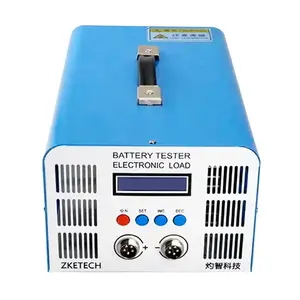Introduction to Battery Pack Tester
In today's technology-driven world, a reliable battery is essential for the performance of various electronic devices, from smartphones and laptops to electric vehicles and medical equipment. A battery pack tester is an invaluable tool that allows users to assess the health and functionality of battery packs efficiently. This device can identify faults, measure capacity, and verify the output voltage, ensuring that batteries operate optimally and safely.
Types of Battery Pack Testers
Battery pack testers come in several types, each designed for specific applications and battery technologies. Understanding these types is crucial for selecting the right tester for your needs.
- Manual Battery Pack Testers: These testers require operators to manually connect leads to the battery terminals and initiate tests. They are often portable and user-friendly.
- Digital Battery Analyzers: Equipped with advanced technology, these testers provide real-time data readings, including voltage, current, and capacity. They often feature LCD screens for easy monitoring.
- Smart Battery Testers: Designed to work with various battery chemistries, smart testers often come with software integration, allowing users to analyze data over time and generate detailed reports.
- Automated Testers: Recommended for industrial applications, these testers can handle multiple battery packs simultaneously and provide high-speed testing with minimal human intervention.
Function, Feature, and Design of Battery Pack Testers
Understanding the functionality and design features of a battery pack tester helps in leveraging its capabilities effectively. Here are crucial features to consider:
- Voltage Testing: Most testers can measure the voltage of battery packs, ensuring they meet specified ranges for optimal performance.
- Discharge Testing: This feature assesses the battery's capacity by discharging it under controlled conditions to gauge its lifespan and reliability.
- Short-Circuit Prevention: Many testers are designed with safety mechanisms that prevent short-circuits during testing, protecting both the operator and the device.
- Portability: Most battery pack testers are lightweight and compact, making them easy to transport and use in various environments.
- User-Friendly Interface: A clear and intuitive display allows users of all skill levels to operate the device without confusion.
Applications of Battery Pack Testers
The applications of a battery pack tester are vast and diverse, catering to different industries and user needs. Here are some common scenarios:
- Consumer Electronics: Testers are widely used by manufacturers and repair shops to ensure batteries in devices such as smartphones, laptops, and cameras are functioning correctly before sale or repair.
- Aerospace and Automotive: In these highly regulated industries, battery testing is crucial to maintaining safety and compliance with industry standards.
- Renewable Energy: Battery pack testers are essential for evaluating batteries used in solar energy storage systems, ensuring they perform efficiently.
- Medical Equipment: Regular testing of batteries in medical devices is imperative, as reliability can directly impact patient outcomes.
Advantages of Using a Battery Pack Tester
Utilizing a battery pack tester brings numerous benefits to users, ultimately enhancing operational efficiency and safety:
- Prolonged Battery Life: Regular testing can identify issues early, allowing users to address problems before they lead to battery failure.
- Cost Efficiency: By ensuring batteries are operating at peak performance, businesses can reduce costs associated with premature replacements and downtime.
- Improved Safety: Testing helps prevent hazardous situations caused by faulty batteries, such as leaks, explosions, or malfunctions.
- Data-Driven Decisions: Advanced testers provide data that can guide users in optimizing battery usage and planning for replacements, leading to more informed financial and operational decisions.





















